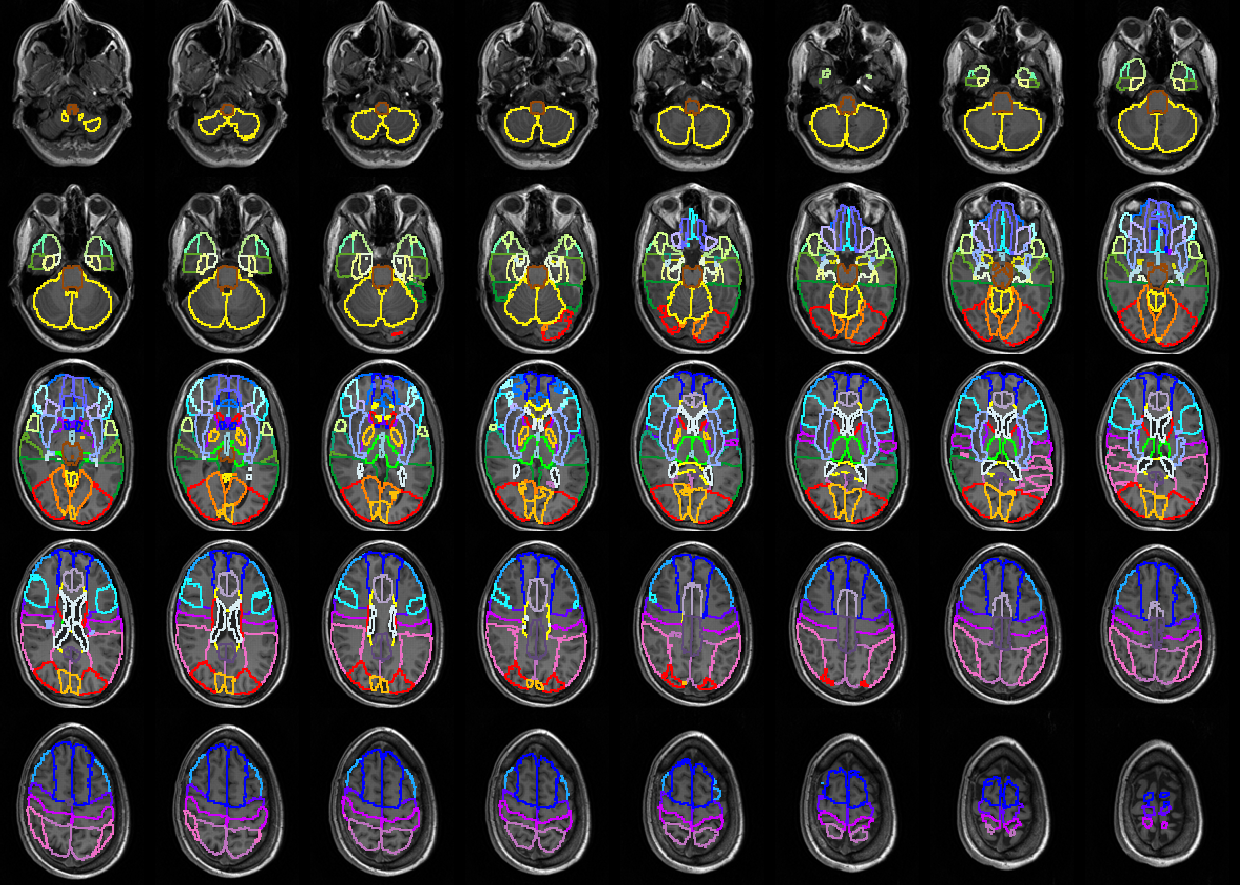The following 83 brain structures are covered the N30R83 atlas. The even label numbers denote left structures, the uneven numbers right structures.
Temporal Lobe
|
1; 2
3; 4
5; 6
7; 8
9; 10
11; 12
13; 14
15; 16
30; 31
82; 83
|
Hippocampus
Amygdala
Anterior temporal lobe, medial part
anterior temporal lobe, lateral part
Parahippocampal and ambient gyri
Superior temporal gyrus, posterior part
Middle and inferior temporal gyrus
Fusiform gyrus
Posterior temporal lobe
Superior temporal gyrus, anterior part
|
Posterior Fossa
|
17; 18
19
|
Cerebellum
Brainstem
|
Insula and Cingulate Gyri
|
20; 21
24; 25
26; 27
|
Insula
Cingulate gyrus (gyrus cinguli), anterior part
Cingulate gyurs (gyrus cinguli), posterior part
|
Frontal Lobe
|
28; 29
50; 51
52; 53
54; 55
56; 57
58; 59
68; 69
70; 71
72; 73
76; 77
78; 79
80; 81
|
Middle frontal gyrus
Precentral gyrus
Straight gyrus
Anterior orbital gyrus
Inferior frontal gyrus
superior frontal gyrus
Medial orbital gyrus
Lateral orbital gyrus
Posterior orbital gyrus
Subgenual anterior cingulate gyrus
Subcallosal area
Pre-subgenual anterior cingulate gyrus
|
Occipital Lobe
|
64; 65
66; 67
22; 23
|
Lingual gyrus
Cuneus
Lateral remainder of occipital lobe
|
Parietal Lobe
|
60; 61
62; 63
32; 33
|
Postcentral gyrus
Superior parietal gyrus
Inferiolateral remainder of parietal lobe
|
Central Structures
|
34; 35
36; 37
38; 39
40; 41
42; 43
44
74; 75
|
Caudate nucleus
Nucleus accumbens
Putamen
Thalamus
Pallidum
Corpus callosum
Substantia nigra
|
Ventricles
|
45; 46
47; 48
49
|
Lateral ventricle (excluding temporal horn)
Lateral ventricle, temporal horn
Third ventricle
|
The example below illustrates the structures adjusted to a brain MRI. Only every third image slice is shown.

Intersection with Gray Matter Probability Map
The definition of the cortical brain structures in N30R83 is not limited to the gray matter. In order to trim the VOIs to brain pixels with a high likelihood of belonging to gray matter, the VOIs can be intersected with a gray matter probability mask thresholded at a certain probability level. It has been noted that this masking tends to excessively reduce the area of the central structures. Therefore, PNEURO offers the option to exclude the central structures from the intersection process. As the ventricular regions have no relation to the gray matter, they are always disregarded by the intersection.
